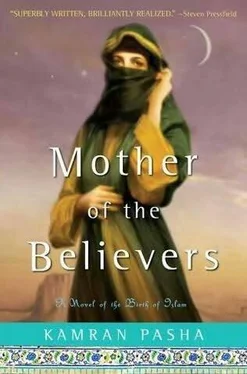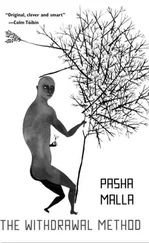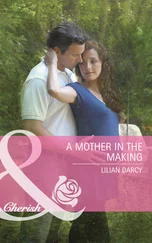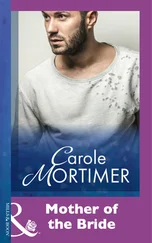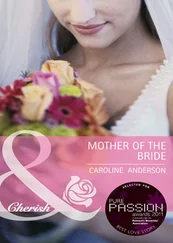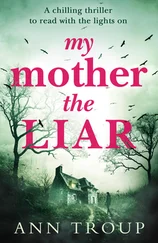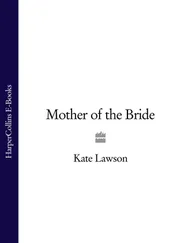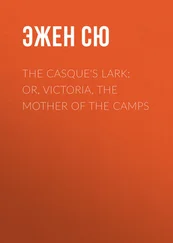The women who had come to greet us decked me out in small ornaments-a thin coral bracelet, an ivory brooch for my hair, a ring made of silver with a tiny bluish gem that might have been an amethyst or a sapphire.
When they were done, they took me to the Prophet’s side and placed me on the lambskin, the only furnishing inside that tiny cell. The Messenger smiled at me gently and then opened his hand. In it I saw a necklace made of onyx beads. My frightened eyes must have sparkled with a little life when I saw the pretty black stones flecked with white and gold, because everyone in the room laughed as if the tension had been released.
The Messenger tied the necklace around my throat, which was, even in my tender youth, long and elegant. He fumbled with the clasp for a second before finally managing to seal it. I thought for a second that he might be as nervous as I was, but of course that was ridiculous. He was a grown man who had already been married twice and had four daughters who were old enough to give him grandchildren.
When he let go, my hand was drawn like a magnet to the necklace, which was Muhammad’s first gift to me as my husband and lover. In the years to come, I would treasure that necklace above all my other possessions, and it would repay my devotion by leading me into scandal and grief. How strange it is now to think that such a small thing could change a girl’s life? But that necklace had a terrible destiny, one that would change not only my life but the history of the world.
But none could have foreseen that, except possibly the Prophet, and I often wonder if he ever knew what destruction would come from that little present. The necklace that began as a blessing, a symbol of love, would end as a curse and a harbinger of death.
The Messenger raised a small wooden bowl filled with clear milk, the curds and fat having been carefully strained away. He sipped it and then looked into my eyes as he offered it to me. As I met his gaze, I felt a flash of something I did not understand in my foolish youth but I now know to have been desire. My body grew hot and I could feel my stomach flurrying as if overrun by tiny hummingbirds. I looked down, embarrassed and intrigued by this strange new sensation, and refused the bowl with a terrified shake of my head.
The Messenger nonetheless brought it to my lips and spoke softly.
“Drink, Humayra.”
There was something about the way he spoke his pet name for me that set the hummingbirds fluttering again. I could feel a bead of sweat drifting down the nape of my neck past my shoulder blades.
I looked at him again and he nodded. I bent forward and kissed the edge of the bowl, letting the icy cool milk flow down my throat. My heart began to beat faster as I did so, and it was no longer just with fear.
When I had drunk my fill, I passed the bowl to my sister, who sat beside me. Asma took a sip and then handed it to our mother, and then it was passed along among all who were present. When the bowl returned to the Messenger’s hand, I was surprised, because it did not look as if the liquid were any less than when we had first tasted it, but I dismissed the thought as just a fantasy of my excited mind.
The ceremony was over and I was now Muhammad’s wife. I had become what the angel had promised and what every other girl I knew secretly wished to be.
I was the Mother of the Believers.
My father arose. He kissed the Prophet’s hand and then placed his warm lips on my forehead.
“May Allah bless the two I love most in this world,” he said. And then he turned to leave, as did the women.
The simple door of palm wood closed behind them and we were alone. The Messenger smiled at me and took my hand in his. I noticed that despite the lingering heat of the evening, his hand was unusually cold, as if cooled by some mysterious breeze. I could feel the steady calm beat of his pulse. Its gentle rhythm soothed me, and the pounding in my chest gradually slowed until it was as if we shared one heart, one breath.
I gazed into his ebony eyes, blacker than midnight, and could see my own reflection in those bottomless pools. But it was not the reflection I witnessed every morning in the mirror. I looked older, wiser, my girl’s body blossomed to full womanhood. My hair was no longer crimson like the sunset but a warm auburn like embers of a dying fire. But I was not smiling. There were pride and righteous anger in my golden eyes that I could not understand. And then I watched as I aged, my hair turning to silver, my face lined but still regal in its beauty. My eyes seemed even older, now filled with regret and shame. And then the vision changed and I was something else, both human and angel, my body at once young and ancient, my hair and the bones of my face glittering with moonlight that seemed to emanate from within. As I looked into the eyes of this otherworldly woman, this spirit from beyond time and space, I saw that there was no more anger or sadness.
Only love.
The vision ended and I was alone with the Messenger. He was looking strangely at me, and for a moment I wondered if he saw what I had seen. But he said nothing about it and simply ran his hand across my face, savoring the delicate softness of my flesh that no man had ever touched before.
He leaned close to me and whispered softly.
“Don’t be afraid.”
I looked into those unearthly black eyes and answered truthfully.
“I’m not.”
He smiled warmly and took me in his arms.
I let myself go and fell into his embrace, losing myself in the wondrous sensuality of his body pressed against mine.
There was no fear. There was no pain.
There was only light.
Book Two. Birth of a City
The Muslims had escaped Mecca, but our enemies gave us no respite.
The establishment of an independent Muslim community outside the control of the Arab oligarchs was an even greater threat than the presence of believers inside the holy city. From our new vantage point in Medina, we were strategically placed to block caravan routes to the north. The Muslims had gone from being a persecuted rabble to an organized force with the ability to cut off the lifeblood of Meccan trade. Realizing that confrontation between our communities was inevitable, Abu Sufyan decided to take preemptive action.
And so it was that one day Umm al-Fadl, the comely wife of Muhammad’s uncle Abbas, stood outside her home, gazing in shock at the scene playing out before her. A group of men, their faces covered in dirty cloths and scarves, had broken open the sealed doors of the Muslim refugees. The houses of her kinsmen and friends had been locked since they had fled to Medina, and the property was under the protection of her husband’s clan, until they returned one day to reclaim it.
She watched in growing outrage as these thieves brazenly violated the honor of the Bani Hashim in broad daylight. The bandits kicked down doors, smashed windows that had been boarded with planks of acacia bark, and threw their ill-gotten booty into the street. Everything that her kinsmen owned-carpets, mirrors, tables, chairs, even cooking utensils-was removed and cast onto waiting donkey carts.
Umm al-Fadl saw the men of the clan standing by, their heads hanging with shame, as these sword-wielding burglars plundered freely. She could not let this go on. Her throat constricting with rage as well as terror, she stepped forward, blocking the path of a particularly loathsome-looking bandit, his cheeks scarred with a thief ’s brand he had probably received as punishment in Taif or one of the southern towns.
“Stop! What are you doing?” She cast a sideways glance, hoping that the frightened men of her clan retained a few shards of masculine honor to protect her if the burglar turned violent.
Читать дальше
